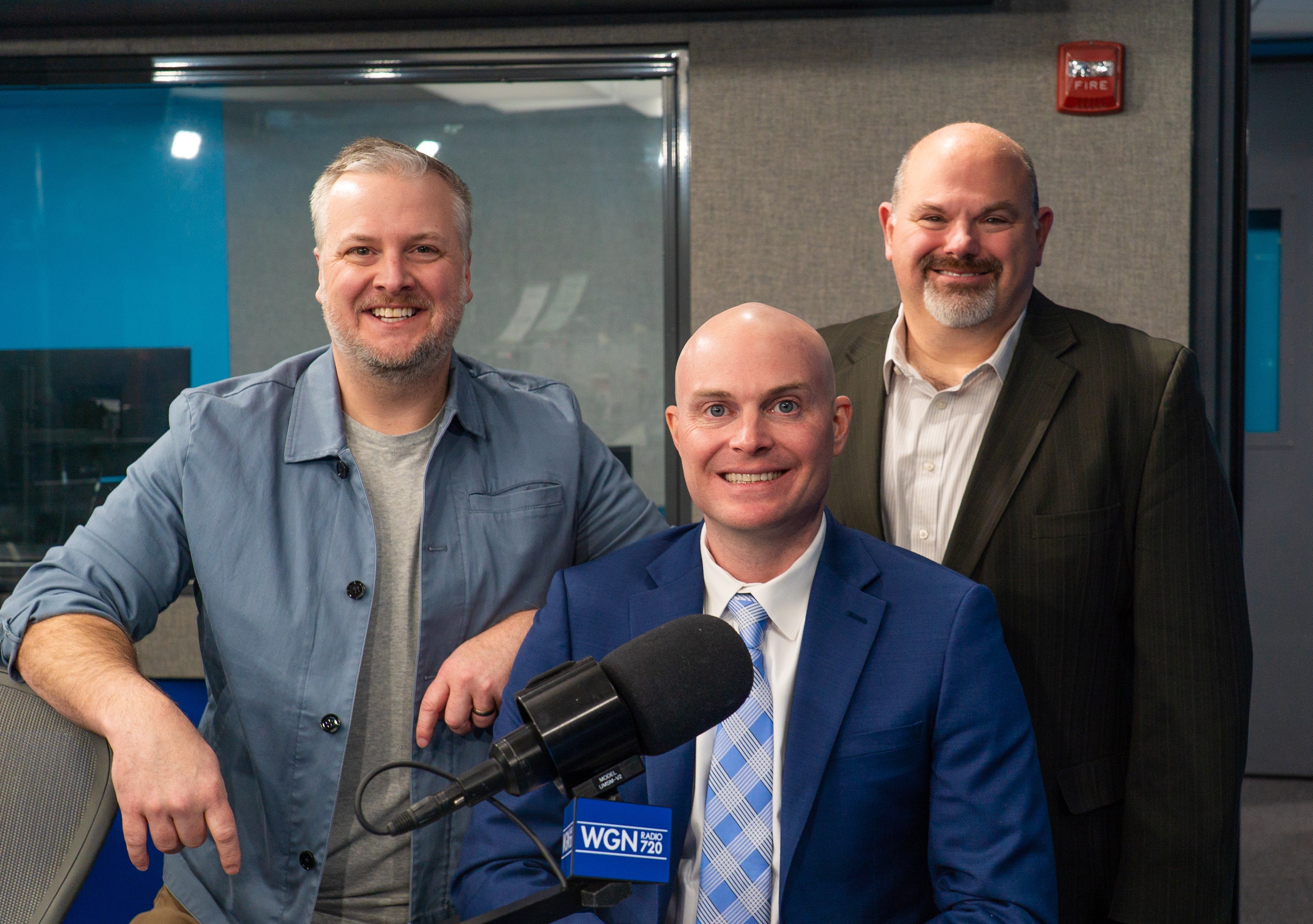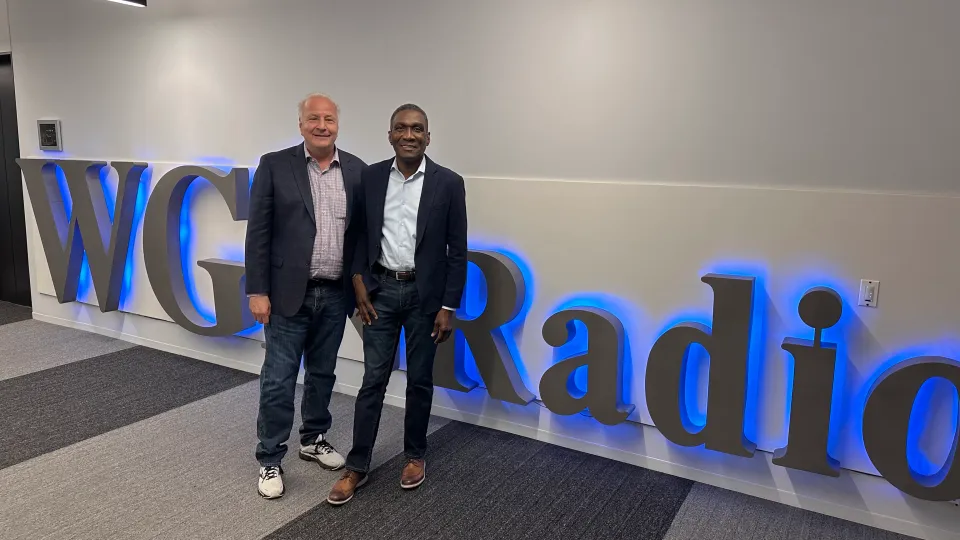Painting The World Colorful: Structuring the Madness with Oli Heine

Share this post
livia Heine, or Oli, as she prefers to be called, is in a word, striking. All angular cheekbones, with an unapologetic, edgy undercut interrupting her inky black hair, and three symmetrical, painted black dots adorning the right side of her forehead. Her bottomless brown eyes that seem to contemplate the entire world within the space of a single breath.

@soundlikeolive
Oli is a visual artist who resides with her husband Frankie. Oli is currently creating graphic design content for Innovation DuPage, and has been commissioned by ID to create a piece in response to the “Frida Kahlo: Timeless” exhibit, coming to the McAninch Arts Center in Summer 2021.
Oli immigrated from Germany six years ago to be with Frankie, a french-american transgender man who moved to the United States for college and decided to stay in the US after being disowned by his family for coming out as queer. Oli admits she has never been one to follow the rules, and never wanted to live her life just going “straight down the tunnel” like you’re supposed to. She was always “the weird one”, in Germany, and proud of it.
A year after her arrival in the United States, on December 30, 2015, Oli was crossing the street with her husband when she was hit by a silver Toyota Tacoma truck, driving in the wrong lane. Oli was flipped onto the hood and then thrown over the car. Her injuries were severe and included a lacerated spleen, bruised lungs, dislocated shoulder, fractured jaw, broken scapula, ankle, cheek and sinus bones. Additionally, a corotid artery dissection compromised blood flow to parts of Oli’s brain which created a high risk of a stroke.
Oli felt as if she was ‘always on the precipice of dying’; and that there was ‘no room for gray’ in her life anymore. The accident changed her entire approach to her art; she likes to say that she was dead for a second, and that something pulled her out of it. While in the ICU, she felt like “she was floating in the dark”, but rather than letting the darkness define her art, Oli breathed life and truth into her experience by ‘painting her world colorful’. She found survival in art, and credits her creative resilience to her East German upbringing.
Oli was born in 1981, and grew up in the German Democratic Republic, otherwise known as East Germany. She was eight years old when the Berlin Wall fell, and so much the art she paints today is created with the hopes of keeping East German culture alive, to remember its beauty, and remind of the cost that came with Communism, to ensure that German citizens will always value the importance of their democracy.

In East Germany, Oli tells me, laughing, ‘we had a saying. “We made gold out of shit”. We were constantly making something out of nothing. This resilience, this sense of looking at ordinary objects with a potential for beauty and promise, as something other than what we are told they have to be, is part of what makes Oli’s art so unique. Oli’s family moved to West Germany after the fall of the Berlin Wall, in the hopes of finding a fresh start. Instead, they became part of West Germany’s growing refugee crisis. Oli remembers having to leave behind everything she had ever known at eight years old; a leap of faith she will unknowingly repeat some twenty years later, this time, for a chance at love.
Upon their arrival in West Germany, Oli and her family had trouble finding housing and getting work, often getting turned away simply for being Eastern German. Oli remembers living in any empty, unfurnished apartment at first, ‘drinking out of yogurt cups’ when they didn’t have any dishware. East Germans today still fight a wage gap and pay discrimination. Oli got lost in the school system, one of the many students that fell through the cracks in a system flooded with refugees. Oli vividly remembers getting teased for her accent and the way she had been taught to stand when teachers entered the classroom. Oli would eventually give up her East Germany dialect completely. East Germans faced daily discrimination for being outsiders. Oli expresses her frustration, saying, “It was definitely a class issue. We were a lower class in the 90s still, and early 2000s”. Now, she explains, what’s so frustrating is that while they are one Germany, and shouldn’t need to talk about a divide, the system is still designed for East Germans to lose. It is continuing a cycle of lesser education, one where East Germans feel as if no one in power truly cares about them, so it shouldn’t be surprising when they vote right wing. History is repeating itself everywhere.

Oli laughs, acknowledging the irony of growing up behind a wall, only to later move to the U.S., where our current President desperately wants to build one. In her view, Europeans today are too quick to be critical of the United States, without acknowledging their own internal problems, and the history that has created the current social inequity and right wing backlash. It’s part of the reason so much of her art is devoted to East German culture: to keep its memory alive, and ensure the German people never take the freedom of their democracy for granted.
Oli blames her mother for her fascination with the arts. Her mother used to work in a framing store when Oli was growing up, and Oli would always spend time there after school. She loved the precision and fastidious care with which they treated each of the frames. At the end of high school, Oli accepted an arts internship, which was a common educational practice in Germany. The program actually focused on fashion design, and Oli’s teachers didn’t like how she painted, they couldn’t find a name for it.
When asked to describe her own artistic influences, Oli cites Andy Warhol and Roy Lichtenstein, leaning towards abstract and modern styles with a love of pop art and vintage, while throwing in a pinch of East German. In German, East Germany is actually called “dark Germany”, and Oli tries to fill that world with color.
Oli quickly found art to be too expensive to study, so switched to social work instead, wanting ideally to combine her love of arts and passion for helping others into some kind of arts therapy.
Right around the time she was set to finish her degree, she was invited by a friend to a concert, where an American band was performing. The drummer’s name was Frankie.
The band was due to return to the States, but Frankie and Oli hit it off immediately. After several months of long distance, talking or Skyping every day, they decided they needed to try and be together, really together, no matter what they had to do or how crazy it might seem.

A lawyer with a passion for LGBTQ rights advised the pair that their best option would be for Oli to stay in the US, get married and apply for her green card in order to have a life together. And that’s what she did. Oli left her entire life in Germany behind, for a chance to be with the person she loves.
When Oli settled in to her new home, she realized her German degree in social work didn’t transfer to U.S. credentials, so she started taking classes again, but after the accident, it was too hard physically to maintain. Her recovery not only gave her a newfound sense of her own artistry, but also of what’s important. In a way, she’s grateful the accident happened, because it brought her back to her art making in a time in her life when she doesn’t have to do anything else.
She’s recently been incorporating more digital elements into her work, which she wants to keep expanding. Often, that takes the form of overlaying one photo with another, or overlaying photos she’s taken over her slightly more traditional paintings and sketches. Her main art page can be found on Instagram at @soundslikeolive, and her non-digital work is saved for her accompanying account, @structuretothemadness. She calls it that because her art is, quite literally, how she structures the madness.
Contorted spiral shapes tend to be Oli’s signature sketch, and she often overlays other modern photos or shapes over black and white nostalgia photos, either American, or to do with East Germany. Oli is also exploring her own body, its trauma, and her scars. She hopes that in reclaiming her body, viewers will think of their own scars with less shame. Besides her paintings and photos, Oli also records YouTube videos with her own original accompaniment. She discusses her life experiences, hoping to share knowledge on little discussed topics such as her battle with endometriosis, and the current socio political climate in Germany (you can subscribe to her channel at soundslikeolive).
When she’s crafting an image, Oli says the picture tells her what to do, and then she just follows her instinct. She’ll keep working on the picture until she looks at it and falls absolutely in love with it. That’s how she knows she’s gotten it right.
Looking to the future, Oli hopes she can begin to find a market for her art here in the US. It’s her dream to be regularly commissioned for work, for her passion to also be a source of income her family can live on. Right now, most of her physical pieces are still being sent back to Germany. Oli wants to find an artistic community here to put roots in. Her collaboration with Innovation DuPage feels like a promising step forward to establishing herself as a working artist.

Oli is still considering a couple different ideas for her Frida Kahlo commission, and she’s anxious to get working. She’s thinking about overlaying two of Frida’s paintings on top of each other, or taking a photo of her own body and laying it over one of Frida’s self portraits, so their bodies juxtapose each other. Both women suffered terrible accidents that deeply influenced their art and their physical imprint on the world, and claiming that trauma as part of their artistic strength, rather than a weakness, has the potential to be incredibly powerful.
To make every setback, no matter how challenging, into the possibility of something beautiful. As they say in East Germany, to “make gold out of shit”. Oli, for one, certainly does.
Ready to scale?





















